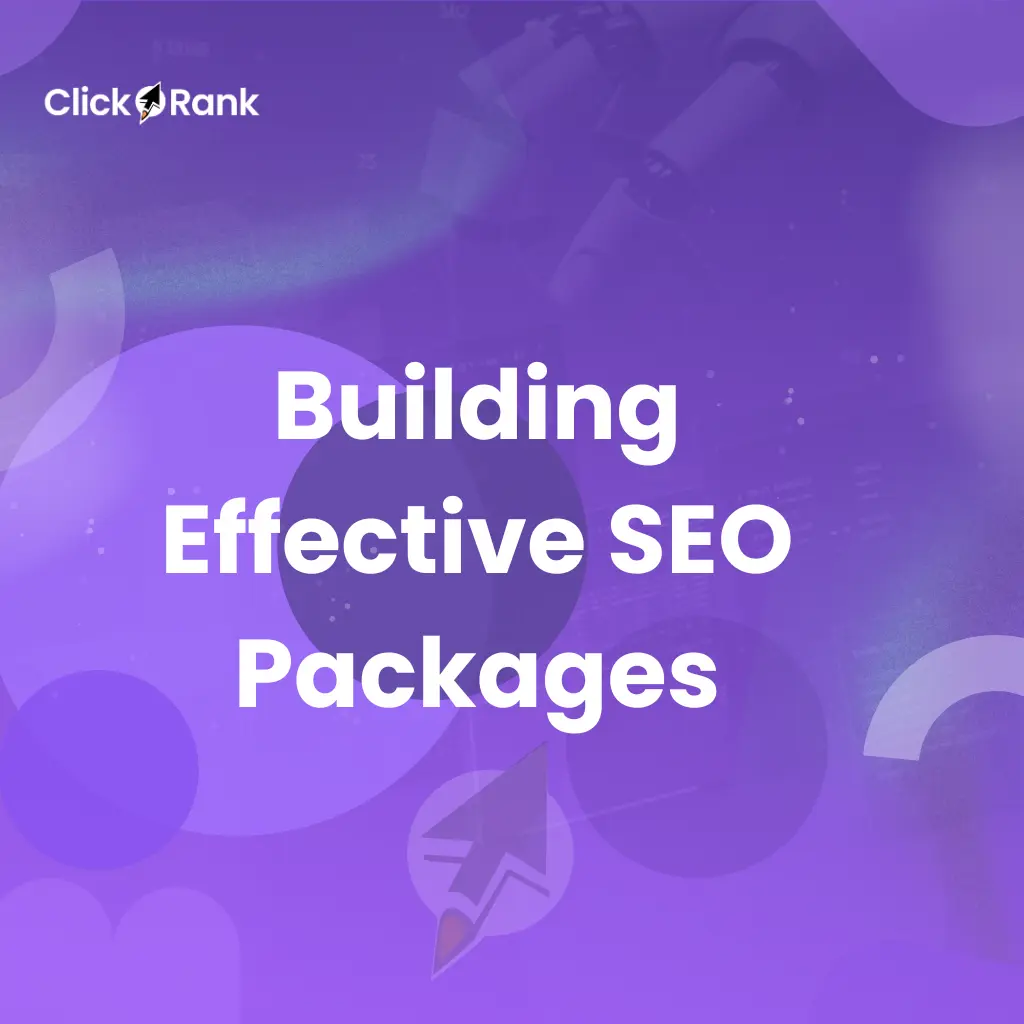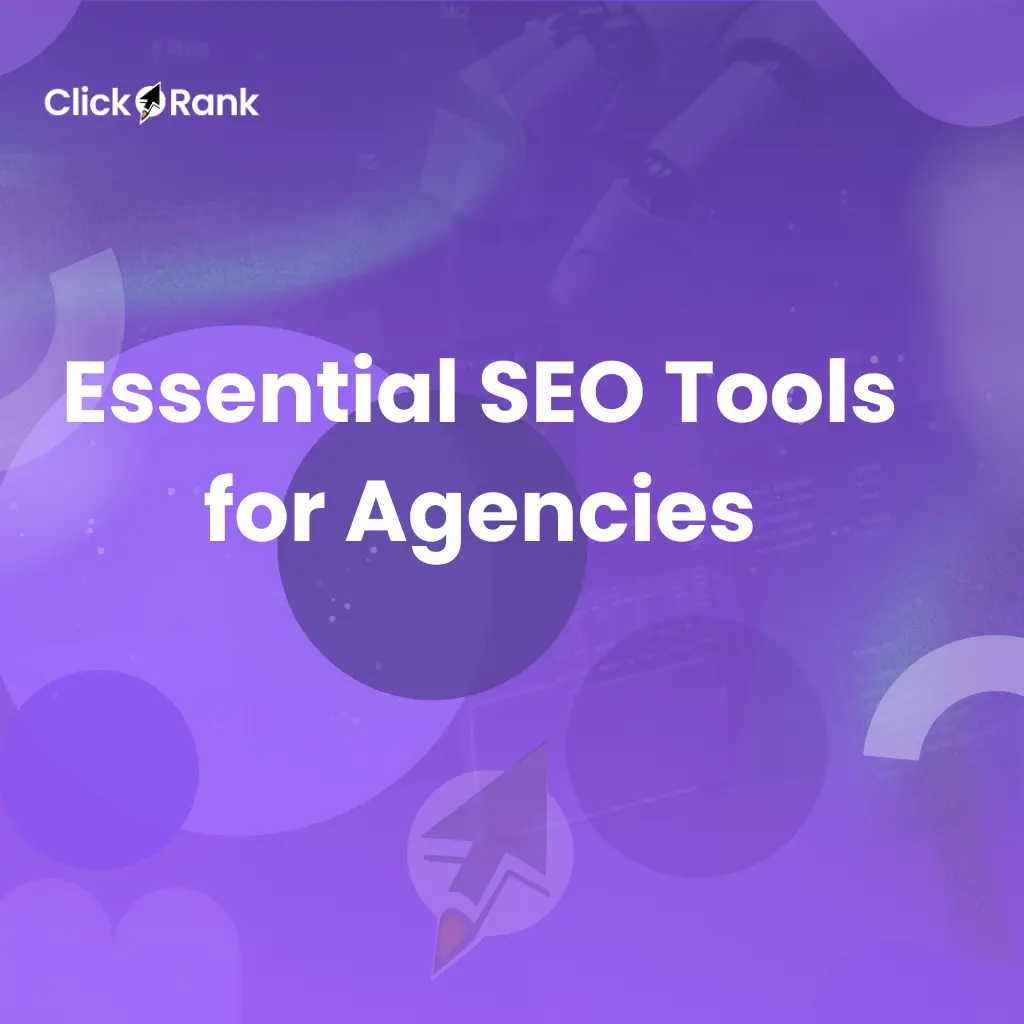SEO for Marketing Agency: Guide to Attract Clients & Grow
Many agencies struggle with ranking their own websites while also helping clients. Missing meta tags, poor on-page SEO, or weak backlink strategies often block growth. In this guide, I explain how you can master SEO to bring in clients, grow revenue, and improve authority. I also show how ClickRank automates complex SEO work with one-click fixes, AI audits, and smart on-page optimization.
What is SEO for Marketing Agencies?
Search Engine Optimization (SEO) is the process of improving how websites appear on Search Engine Results Pages (SERP). For a marketing agency, SEO is not just about rankings. it’s about attracting clients, proving authority, and showing measurable growth.
Simple Definition in Conte
SEO for agencies means optimizing both your agency’s site and your client sites. It covers keyword research, content creation, backlinks, and technical health.
How SEO Helps Agencies
Agencies use SEO to bring organic traffic, reduce reliance on PPC, and build trust. This also supports client acquisition and long-term retention.
Difference from Standard Business SEO
Business SEO focuses on one site. Agency SEO involves multiple campaigns, reporting, and scaling—requiring tools, automation, and structured workflows.
SEO for agencies works on two levels. First, the agency needs to rank its own website. If a potential client searches for “digital marketing agency near me” or “SEO service for small business,” your agency must appear on page one. This builds trust before a conversation even starts.
Why SEO is Essential for Marketing Agencies
Clients expect agencies to lead by example. If your site is not ranking, clients may question your ability. Strong SEO builds credibility, saves ad spend, and attracts clients over time.
Credibility and Thought Leadership
When your agency ranks for competitive terms, it shows expertise. Publishing case studies, blog optimization, and content strategy adds authority.
Balancing PPC and Organic
SEO reduces reliance on Pay-Per-Click (PPC). Instead of paying for every click, agencies get steady organic traffic that lowers acquisition costs.
Long-Term Client Acquisition
SEO continues to drive leads month after month. Unlike ads, the results last longer and support client retention.
Finding the Right Words to Connect
Once your website is solid, it's time to focus on the words you use. This is where Keyword Research is critical. I use a few key tools to find out what students are searching for. I might use a free tool like Google Keyword Planner to find a starting point. For deeper insights, I turn to tools like Ubersuggest, Ahrefs, and Moz. These tools help me see what keywords a university is already ranking for and find new opportunities. A great tip is to also look at the "People Also Ask" (PAA) boxes that show up on Google search results. These questions are a goldmine for understanding what students want to know. When you create content that answers these questions, you are more likely to show up in those featured snippets.
Why SEO Matters for Agencies Today
Agencies cannot ignore SEO because it builds trust, reduces reliance on ads, and creates long-term growth. It is not just about rankings—it is about winning and keeping clients.
Credibility Through Rankings
High SERP rankings show clients that your agency is skilled in SEO.
Reduced Advertising Costs
Strong SEO lowers PPC spend by delivering steady organic traffic.
Better Client Retention
Agencies with solid SEO provide long-term growth, improving client retention
Improved Conversions
Optimized landing pages and CTAs increase conversion rates.
How Agencies Can Package and Deliver SEO Services
Agencies need structured packages to sell SEO effectively. By offering clear tiers and combining SEO with other services, agencies scale faster and keep clients satisfied.

Building Effective SEO Packages
Clients want clarity. Packages make it easier for them to understand what they are paying for and what results to expect.
-
Basic SEO (keyword research, on-page SEO, reporting)
-
Standard SEO (content marketing, backlinks, CRO support)
-
Premium SEO (advanced audits, local SEO, schema markup, competitor analysis)
Essential SEO Tools for Agencies
Agencies cannot scale SEO without the right tools. From audits to reporting, these platforms simplify work and improve accuracy.
-
SEO Audit Tools (Ahrefs, SEMrush, Screaming Frog)
-
Reporting Dashboards (Google Data Studio, AgencyAnalytics)
-
Project Management Tools (Trello, Asana, ClickUp)

Frequently Asked Questions (FAQ)
What SEO services should a marketing agency offer?
A good agency should offer on-page SEO, off-page SEO, technical SEO, local SEO, and content marketing. On-page includes meta tags, header tags, and keyword research. Off-page includes backlinks and reputation management. Technical SEO ensures indexing, page speed, and mobile optimization. Local SEO helps with Google Business Profile and reviews. Content marketing builds authority with blogs, case studies, and videos.
How can agencies prove ROI from SEO to clients?
ROI can be shown by tracking traffic, conversions, and rankings. Tools like Google Analytics and Google Search Console measure organic traffic and user behavior. Agencies can also show improvements in domain authority, bounce rate, and click-through rate (CTR). Clear reporting dashboards make results easy to understand. ClickRank supports this with smart recommendations and AI-powered audits connected to real data.
What tools are best for managing multiple SEO clients?
Agencies often use Ahrefs, SEMrush, or Moz for keyword research and backlinks. Screaming Frog helps with technical audits. Google Data Studio and AgencyAnalytics are used for client dashboards. Project management tools like Trello, Asana, or ClickUp help track campaigns. ClickRank combines many of these steps by offering one-click fixes and automated SEO audits, which saves time for agencies with many clients.
How long does it take for agencies to show SEO results?
SEO takes time because search engine algorithms need to index and evaluate changes. Most agencies see early improvements in 3–4 months, with stronger results after 6–12 months. Factors include competition, backlink profile, content quality, and site speed. Agencies can speed up results by fixing technical errors, optimizing Core Web Vitals, and creating high-quality content clusters.
Should agencies use white-label SEO or in-house teams?
White-label SEO is useful for scaling because agencies can deliver services without hiring large teams. It includes outsourcing audits, link building, and reporting. In-house teams offer more control but cost more. Many agencies mix both, using white-label SEO for repetitive tasks while keeping strategy and client communication in-house. ClickRank supports both by offering automation that fits into agency workflows.
Start Growing Your Agency with SEO Today
SEO does not need to be slow or complex. With the right strategy and automation, your agency can attract clients, deliver results, and scale faster. ClickRank helps you do this with AI-powered audits, one-click fixes, and on-page optimization.